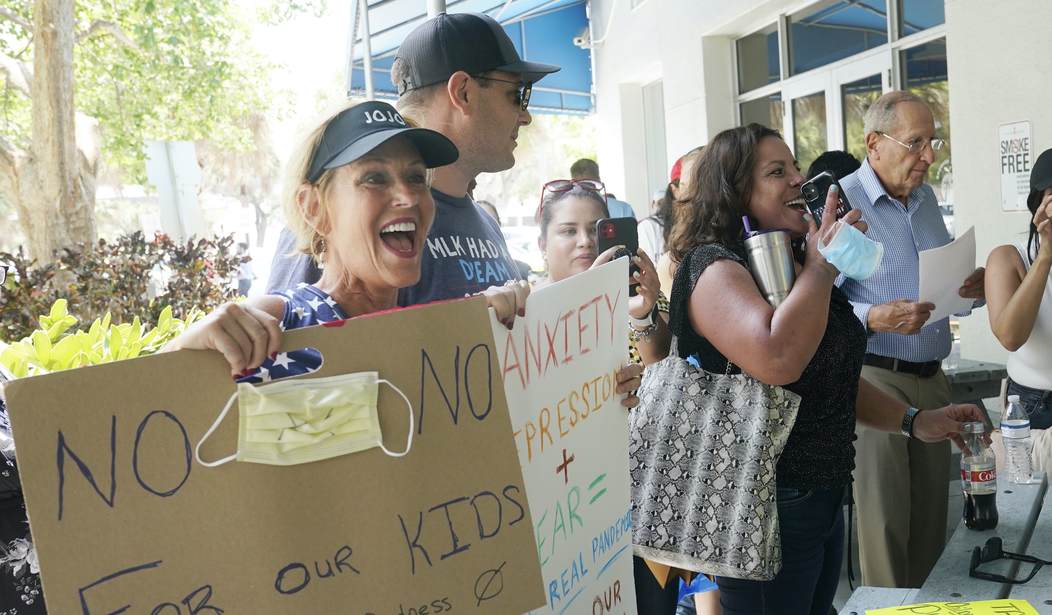This is a story that first surfaced earlier in the week but hasn’t gained a lot of traction yet. (This is perhaps understandable given the situation in Ukraine, but also likely by intention.) For the first time in decades, the CDC has changed many of the recognized milestones for childhood development in terms of speech and cognitive functions. These markers are considered important in terms of recognizing when children aren’t progressing quickly enough, suggesting the potential need to determine if some sort of impairment is being observed and if the child may require greater medical attention. The curious thing about the changes instituted by the CDC is that in a majority of the cases, they have lowered the standards rather than raising them. I first noticed this news on Twitter, as so often happens these days.
The CDC just quietly lowered the standards for speech in early childhood development.
Now children should know ~50 words at 30mo rather than 24mo.
Instead of highlighting the harmful effects 😷s & lockdowns have had on children, the CDC just lowered the bar for milestones. pic.twitter.com/11QraOgFbJ
— BowTiedRanger (@BowTiedRanger) February 18, 2022
You can read the new guidelines here. One of the big changes that many critics are focusing on is the former guideline saying that children should normally know approximately fifty words by 24 months or two years of age. That benchmark has now been stealthily raised to 30 months. That’s not insignificant at all. It’s a 25% increase from the previous standard.
The Postmillennial examines the context in which these changes are taking place. It’s hard to ignore the growing body of reports showing that childhood development has been suffering as a result of various COVID protocols, raging from “virtual learning” environments to forcing children to wear face masks.
The update banner at the top of the page points those interested in the updates to the developmental milestones to a Pediatrics article outlining the research conducted that resulted in the change.
One of the authors of this study, Jennifer M. Zubler, said that the changes were made to the guidelines ensure that it reflects milestones that at least 75 percent of children can reach. Since children are no longer able reach these previously attainable milestones, they have been lowered.
The abstract states: “Application of the criteria established by the AAP working group and adding milestones for the 15- and 30-month health supervision visits resulted in a 26.4 percent reduction and 40.9 percent replacement of previous CDC milestones. One third of the retained milestones were transferred to different ages; 67.7 percent of those transferred were moved to older ages.”
It should go without saying that keeping the schools closed for as long as the government (and to a far greater extent, the teachers’ unions) did produced a significant negative impact on normal childhood development. The lack of interaction with their peers, frequently combined with families who had either technical or educational challenges in accessing the material and completing the assignments couldn’t have been helpful. And even for the children who were able to eventually get out of the house, wearing masks and being surrounded by both adults and children in masks robbed them of many of the nonverbal cues that are part of building language skills and social interaction tools.
While anecdotal, this thread from the brother of a pediatric speech therapist should be enough to give anyone pause.
My sister who is a speech therapist in MD just texted me: “The speech issues I see with three and four year olds that have been masked I’ve never seen before in 22 years. So much low muscle tone, drooling, unusual articulation errors on early developing sounds…”
— Daniel Horowitz (@RMConservative) February 9, 2022
In the earliest days of the pandemic, well before the first vaccines were rolled out, it is perhaps excusable that the government overreacted to COVID. There was so little known about the virus and how it would impact large populations that we likely erred on the side of caution. But as time went by and the database of knowledge grew, we never seemed to adjust. It quickly became obvious that school-age children were among the least likely to spread COVID or suffer the worst effects from it. But we just kept locking everyone up and telling them to constantly wear masks. Nobody seemed to care that cloth masks were the only ones that most people could get their hands on that most of them were virtually useless.
Someday the complete book on the American response to the arrival of this virus will be written. I can only hope that we managed to learn something after all of this time. That’s because we may have initially “erred on the side of caution,” but it’s becoming increasingly clear that we managed to err a lot.








Join the conversation as a VIP Member